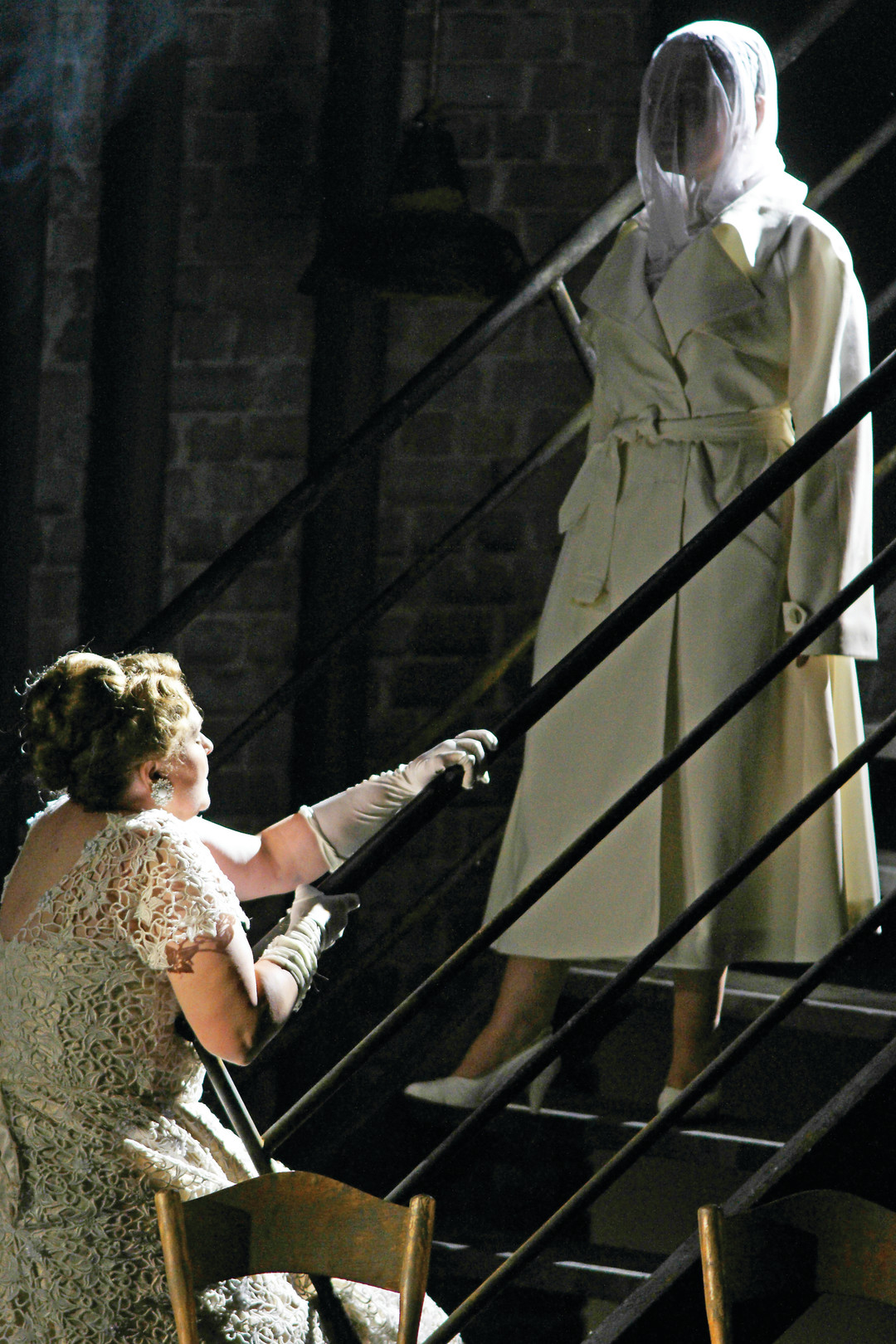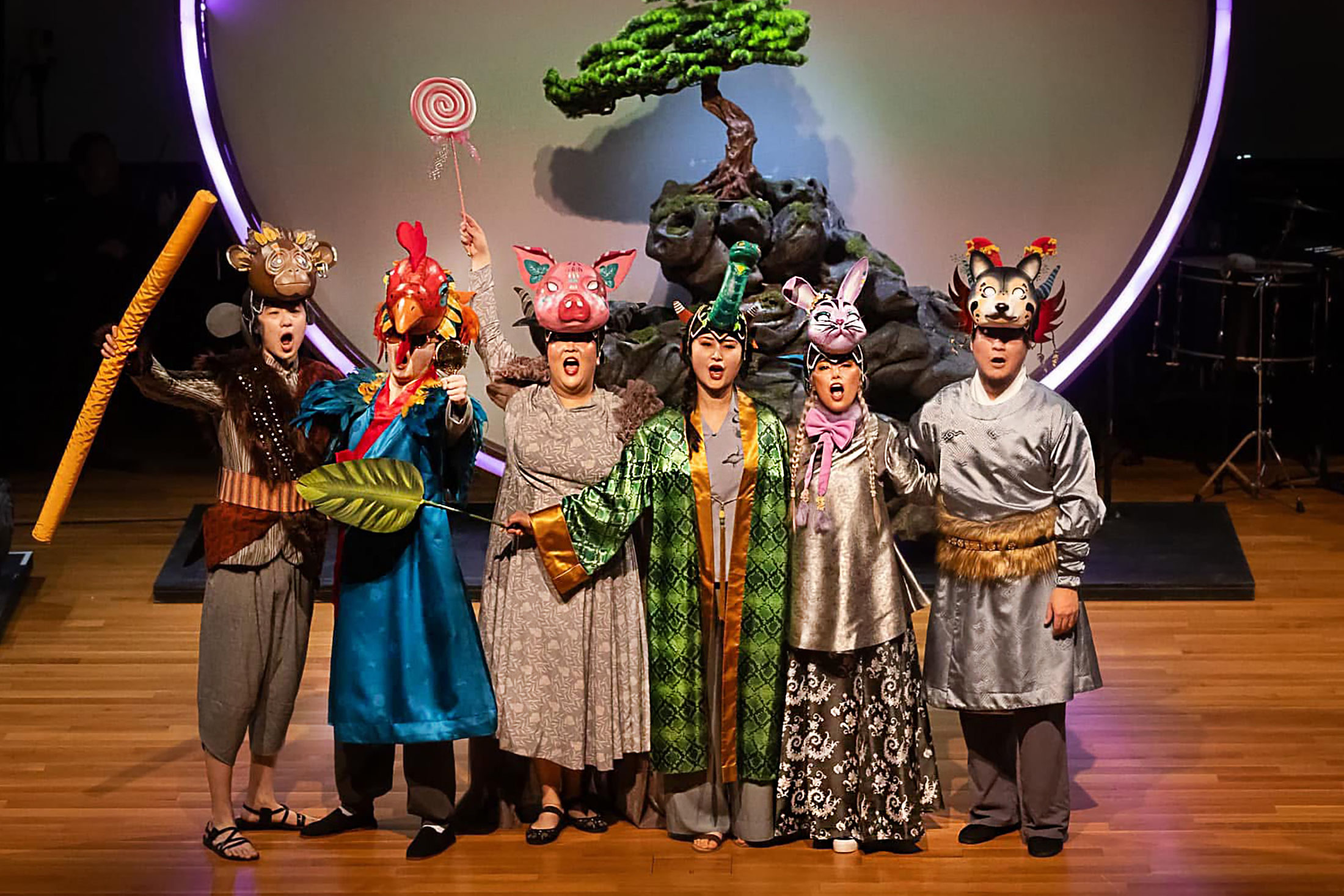Review: The Passenger's Difficult Yet Important Journey

The Passenger at Bregenz Festival
Image: Karl Forster
The extraordinary new opera The Passenger opens with a married couple, dressed in all white, standing on the deck of an ocean liner. From their conversation, we learn that it’s the 1960s and that the man, Walter, is a West German diplomat on his way to take up a new appointment in Brazil. Everything seems perfect between Walter and his young wife, Liese, until a stranger wearing a veil over her face walks past them on the deck, prompting a horrified reaction from Liese. Under Walter’s insistent questioning, Liese admits that the woman bears a resemblance to a prisoner named Marta at Auschwitz, where Liese worked as an SS overseer—a part of her past that she had never before revealed to Walter. Liese believes that Marta is dead, and is terrified that she will recognize her and denounce her as a war criminal. Although initially shocked, Walter forgives his wife and goes about trying to ascertain who the woman really is.
The Passenger
Thru Feb 2
Houston Grand Opera
Brown Theater, Wortham Theater Center
501 Texas Ave
713-228-6737
houstongrandopera.org
In the next scene, we move from the ship back in time to the concentration camp, where we see Liese first encountering Marta. Liese is revealed as a cruel, swaggering bully who hides behind the rationalization of “just doing her duty.” The set, by designer Johan Engels, evokes the death camp through the powerful use of railroad tracks, crematoria, prisoner barracks, and the ragged uniforms and shaved heads of the inmates. In the women’s barracks are prisoners from every corner of Europe, united by their uncertainty as to who will be sent to the gas chamber next. In an effort to control the prisoners, Liese attempts to recruit Marta as a spy, but is continually rebuffed. Even granting permission for Marta to visit her fiancé Tadeusz, also a prisoner in the same camp, fails to win Marta’s cooperation.
For the remainder of the opera, the scene constantly shifts between the present-day world of the ship—where Walter and Liese try to learn more about the stranger’s identity—and the world of the death camp, where Marta tries to elude Liese’s machinations. The ingenious, dual-level set, with the ship on the upper level and the camp on the lower level, symbolizes the apparent distance between the nightmarish world of Auschwitz and the apparently carefree life on the ocean liner. But as events come to show, the past has a way of haunting the present.
Composer Mieczyslaw Weinberg, who fled his native Poland during the 1939 German invasion and lost his entire family in the Holocaust, wrote the opera in 1968 in the Soviet Union, where he was given citizenship. Unfortunately, the anti-Semitic Soviet authorities cancelled the opera’s premiere, and it remained unperformed in Weinberg’s lifetime. It was finally staged at the Bregenz Festival in Austria in 2010 in a production by British impresario David Poutney. The Houston Grand Opera is giving the work’s American premiere, and this summer the HGO will also perform the opera at the Lincoln Center Festival in New York.
Weinberg’s music shows the influence of his more famous contemporary and mentor, Dmitri Shostakovich. Jagged, dissonant, but at times startlingly melodic, the score manages to express the full range of emotions on display in the libretto. The music has a heterogeneous texture, incorporating aspects of Brazilian samba, jazz, and Russian folk songs to evoke the cosmopolitanism of the ship’s passengers and the various ethnicities represented in the death camp. The undisputed star is South African mezzo-soprano Michelle Breedt, who reveals the inner fanaticism lurking behind Liese’s mask of sentimentality. Although she can deceive her husband about her true nature, she can’t deceive Marta, the audience, or ultimately even herself.
Despite being three hours long, the opera holds the audience spellbound, hanging on every word and note. And although the subject matter can be difficult to sit through, the result is one of the most important operas to appear in Houston in recent years.




